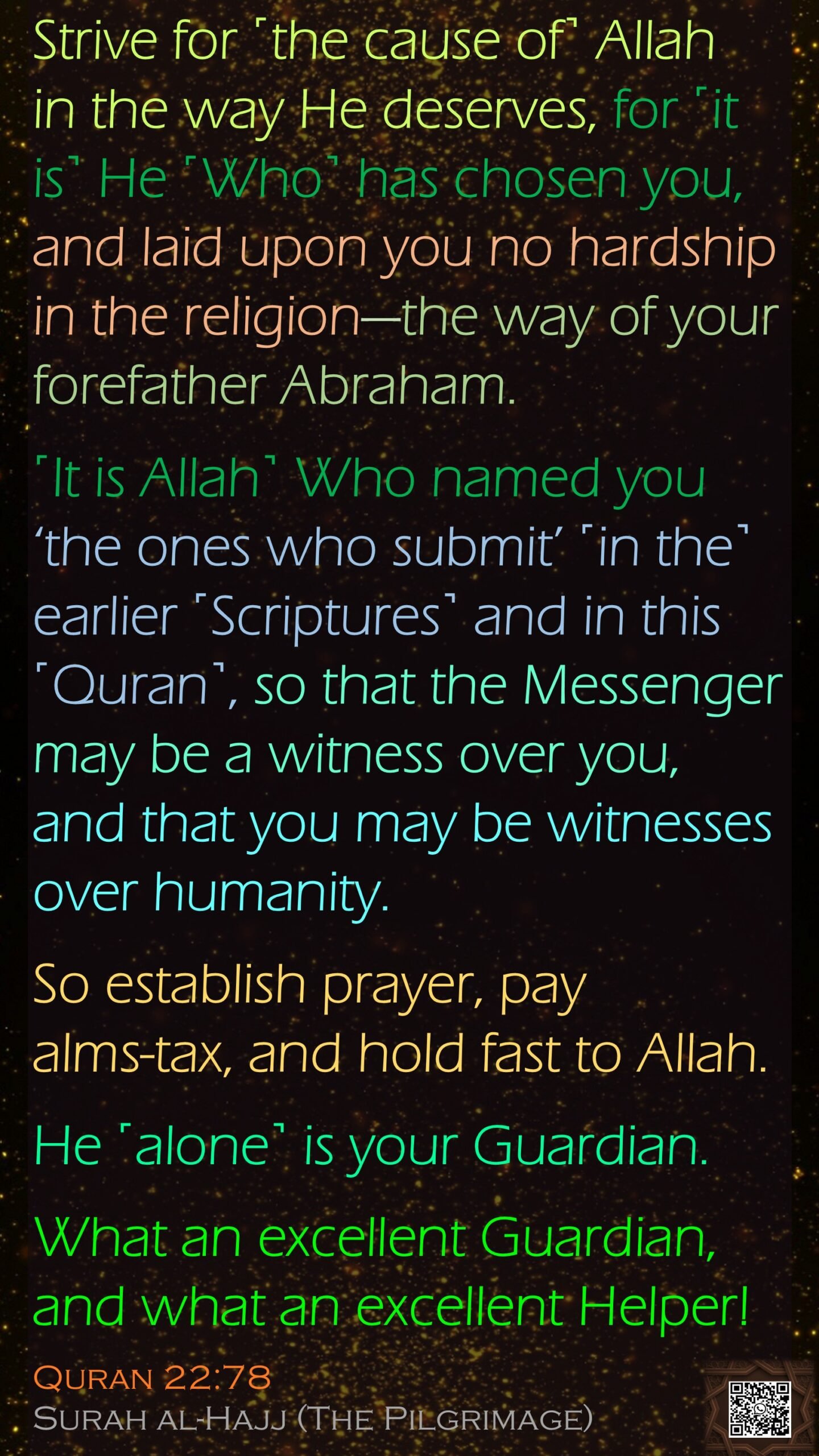16
Jun, 2025
Quran 22:78 (Ayah al-Hajj)
Islam, Quran 022, 078, Abraham, al-Hajj, Allah, alone, ayat, Chinese, chose, chosen, chosen ones, daily, deserve, excellent, french, Guardian, Hajj, hardship, helper, holy war, ibraheem, Ibrahim, inspirations, islam, islamic, jihad, language, Mandarin, messenger, Muhammad, Muslim, Muslimeen, no, Portugese, quran, religion, Russian, scripture, spanish, strive, Surah, the ones who submit, translation, witness
9
Aug, 2024
Quran 35:36~37
Islam, Quran 035, 37, Allah, ayat, daily, Death, deeds, disbelievers, do good, Fatir, fervently, finish, Fire f Hell, helper, inspirations, islam, islamic, lighten, long life, Lord, mindful, Muhammad, Punishment, quran, reward, screaming, send us back, stubborn, Surah, The Creator, told, torment, warner, wrongdoer
28
Jun, 2024
Quran 45:33~35
Islam, Quran 34, 35, 3fire, 45, al-Jathiyah, Allah, allow, appease, ayat, consequence, daily, deed, delude, dy, evil, fire, helper, home, inspirations, islam, islamic, kneel, kneeling, meet, mock, Muhammad, neglect, overwhelm, quran, revelation, ridicule, Surah, take out, unfold, yours
25
Mar, 2023
Quran 3:190~194
Islam, Quran 190, 191, 192, 193, 194, Allah, alone, alternation, ayat, belief, creation, daily, day, die, disgrace, earth, fail, fire, forgive, Glory, grant, heavens, helper, inspirations, islam, islamic, judgement, lying, never, night, no, pray, proclaim, promise, protect, purpose, quran, reflect, remember, reson, shame, signs, sitting, standing, Surah, torment, true, virtuous, wrongdoer
28
Jan, 2022










